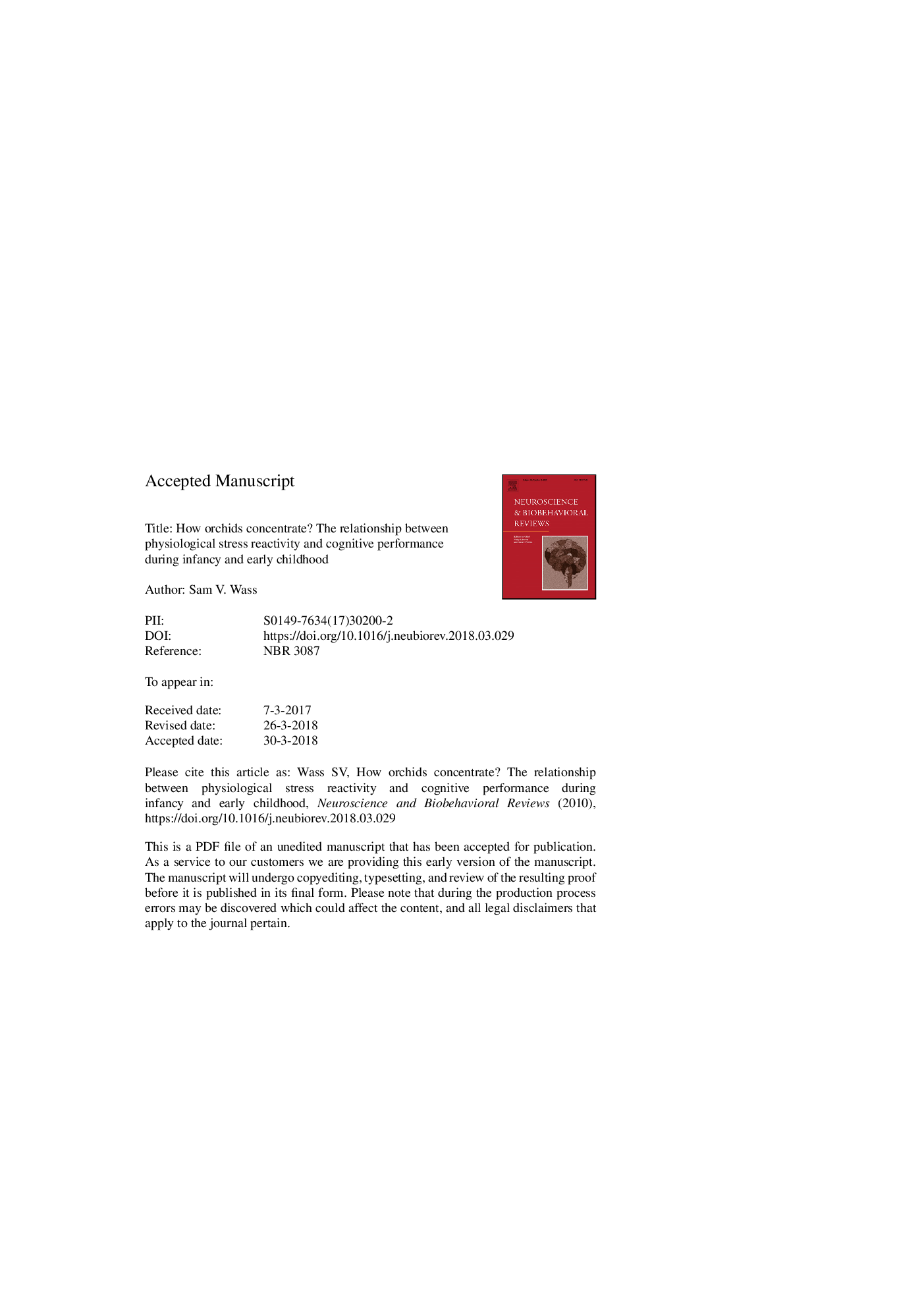| کد مقاله | کد نشریه | سال انتشار | مقاله انگلیسی | نسخه تمام متن |
|---|---|---|---|---|
| 7301690 | 1475281 | 2018 | 62 صفحه PDF | دانلود رایگان |
عنوان انگلیسی مقاله ISI
How orchids concentrate? The relationship between physiological stress reactivity and cognitive performance during infancy and early childhood
ترجمه فارسی عنوان
چگونه ارکیده ها تمرکز می کنند؟ ارتباط بین واکنش پذیری استرس فیزیولوژیکی و عملکرد شناختی در دوران کودکی و دوران کودکی
دانلود مقاله + سفارش ترجمه
دانلود مقاله ISI انگلیسی
رایگان برای ایرانیان
کلمات کلیدی
انگیختگی، فشار، توجه واکنش پذیری، تئوری حساسیت دیفرانسیل،
موضوعات مرتبط
علوم زیستی و بیوفناوری
علم عصب شناسی
علوم اعصاب رفتاری
چکیده انگلیسی
The Autonomic Nervous System (ANS) is involved both in higher-order cognition such as attention and learning, and in responding to unexpected, threatening events. Increased ANS reactivity may confer both superior short-term cognitive performance, and heightened long-term susceptibility to adverse events. Here, we evaluate this hypothesis within the Differential Susceptibility Theory (DST) framework. We hypothesise that individuals with increased reactivity may show heightened biological sensitivity to context, conferring both positive (development-enhancing) effects (superior attention and learning) and negative (risk-promoting) effects (increased sensitivity to unsupportive environments). First, we examine how ANS reactivity relates to early cognitive performance. We hypothesise that increased phasic ANS reactivity, observed at lower tonic (pre-stimulus) ANS activity, is associated with better attention and learning. We conclude that the evidence is largely in support. Second we discuss whether ANS reactivity to 'positive', attention-eliciting and to 'negative', aversive stimuli is a one-dimensional construct; and evaluate evidence for how the real-world environment influences physiological stress over short and long time-frames. We identify three areas where the evidence is currently inconclusive.
ناشر
Database: Elsevier - ScienceDirect (ساینس دایرکت)
Journal: Neuroscience & Biobehavioral Reviews - Volume 90, July 2018, Pages 34-49
Journal: Neuroscience & Biobehavioral Reviews - Volume 90, July 2018, Pages 34-49
نویسندگان
Sam V. Wass,
